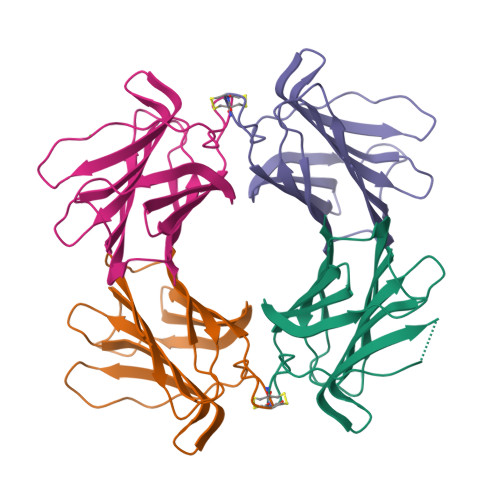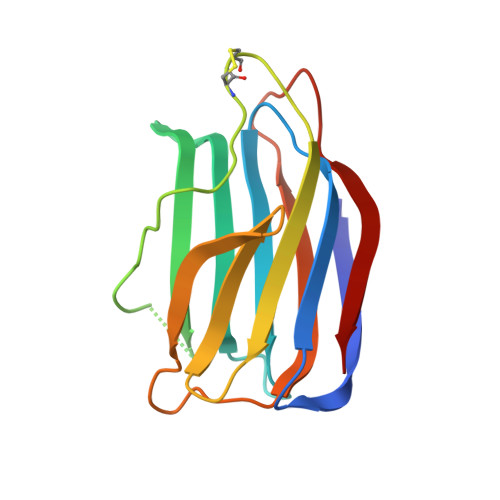Structure of a Tetrameric Galectin from Cinachyrella Sp. (Ball Sponge).
Freymann, D.M., Nakamura, Y., Focia, P.J., Sakai, R., Swanson, G.T.(2012) Acta Crystallogr D Biol Crystallogr 68: 1163
- PubMed: 22948917
- DOI: https://doi.org/10.1107/S0907444912022834
- Primary Citation of Related Structures:
4AGG, 4AGR, 4AGV - PubMed Abstract:
The galectins are a family of proteins that bind with highest affinity to N-acetyllactosamine disaccharides, which are common constituents of asparagine-linked complex glycans. They play important and diverse physiological roles, particularly in the immune system, and are thought to be critical metastatic agents for many types of cancer cells, including gliomas. A recent bioactivity-based screen of marine sponge (Cinachyrella sp.) extract identified an ancestral member of the galectin family based on its unexpected ability to positively modulate mammalian ionotropic glutamate receptor function. To gain insight into the mechanistic basis of this activity, the 2.1 Å resolution X-ray structure of one member of the family, galectin CchG-1, is reported. While the protomer exhibited structural similarity to mammalian prototype galectin, CchG-1 adopts a novel tetrameric arrangement in which a rigid toroidal-shaped 'donut' is stabilized in part by the packing of pairs of vicinal disulfide bonds. Twofold symmetry between binding-site pairs provides a basis for a model for interaction with ionotropic glutamate receptors.
Organizational Affiliation:
Molecular Pharmacology and Biological Chemistry, Feinberg School of Medicine, Northwestern University, Chicago, IL 60611, USA. freymann@northwestern.edu



















